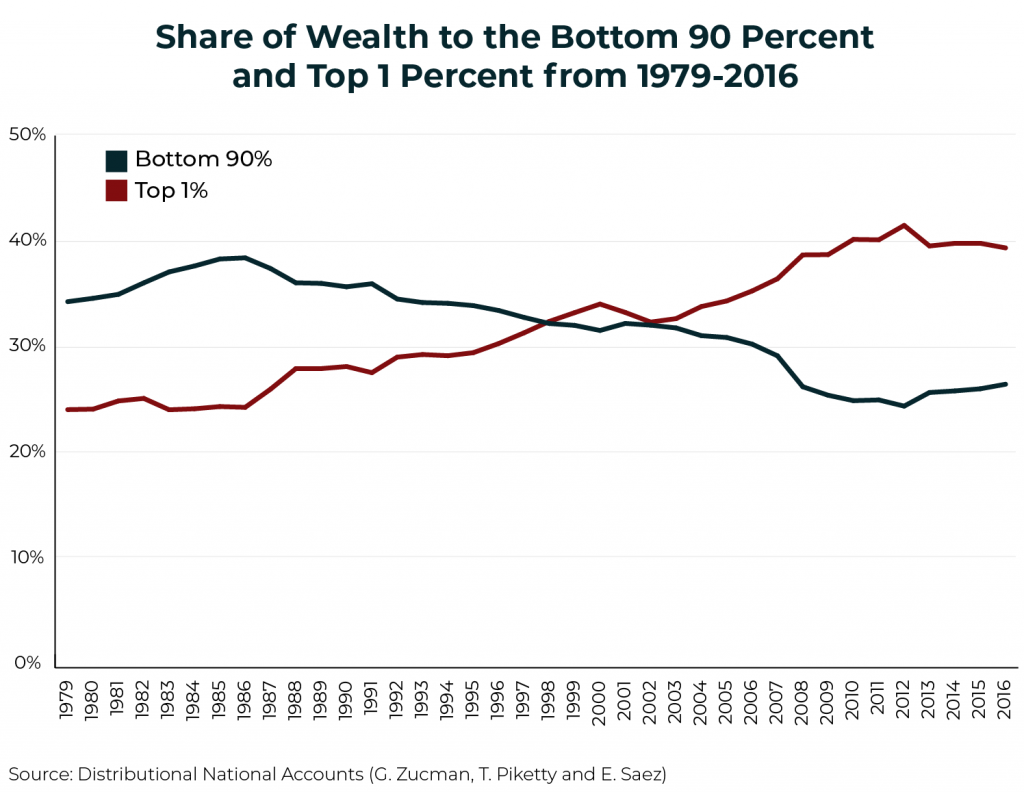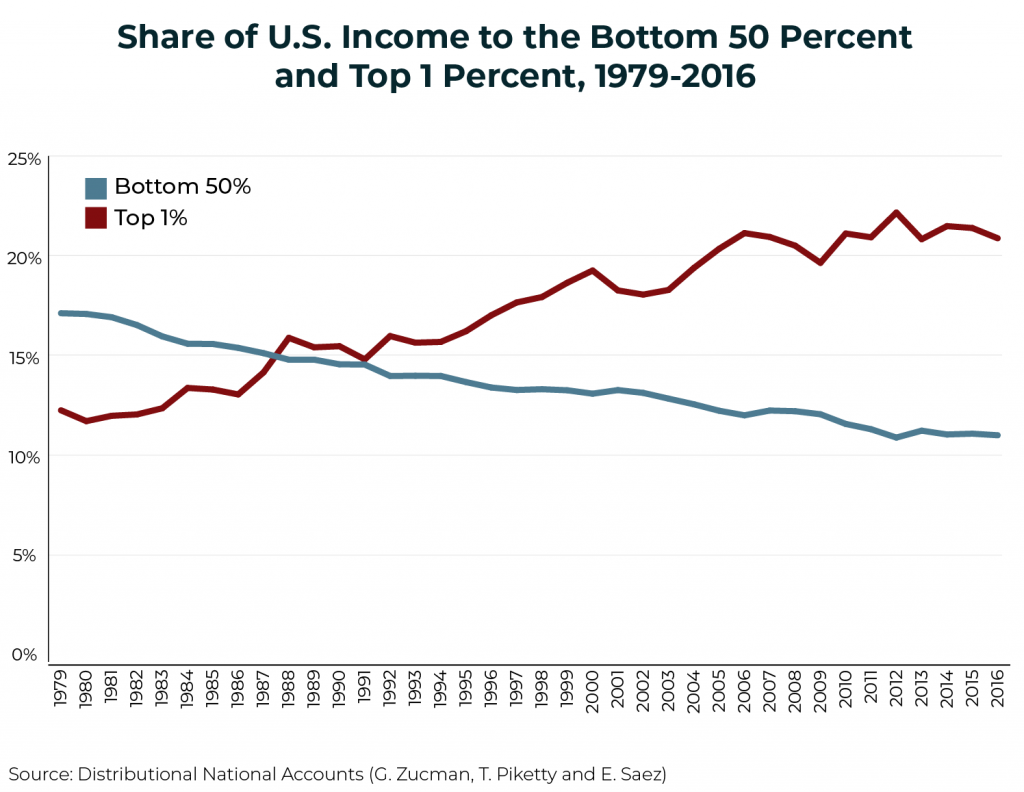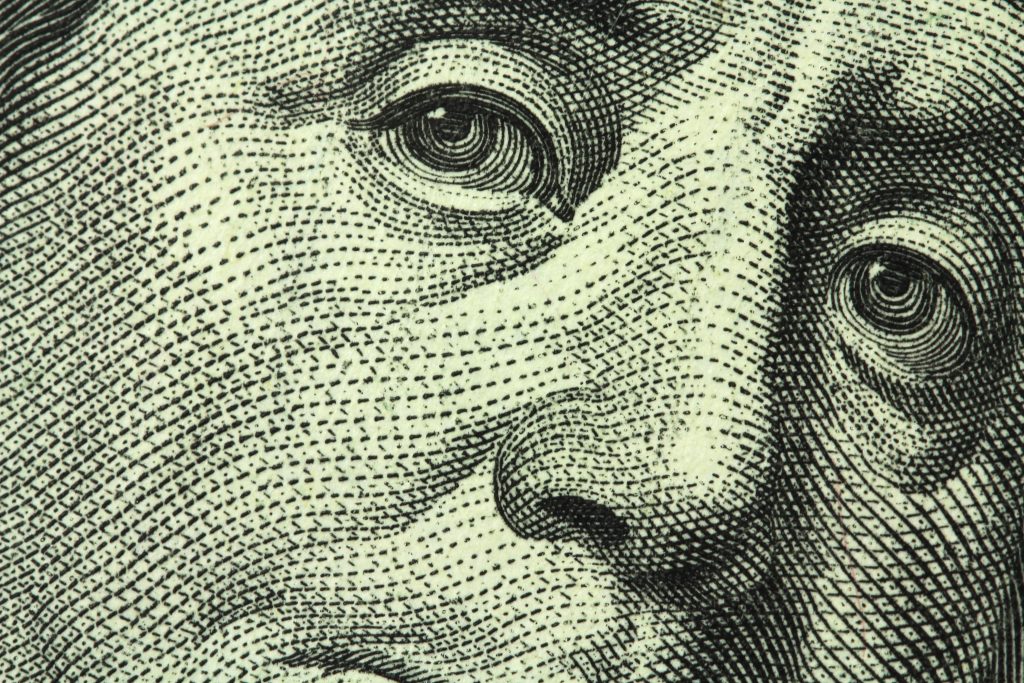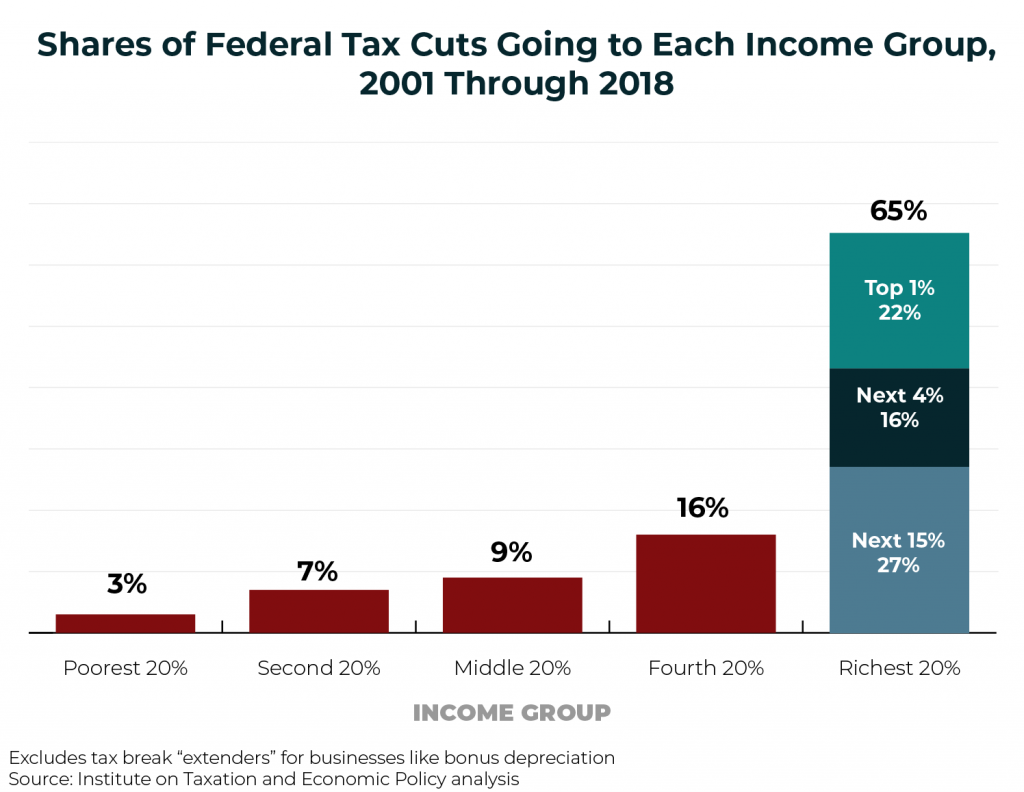Yesterday, a New York Times article explained that proponents of a federal wealth tax hope to address exploding inequality but then went on to discuss the fears of some billionaires and economic policymakers that such a tax “would cripple economic growth, sap the motivation of entrepreneurs who aspire to be multimillionaires and set off a search for loopholes.” A wealth tax will not damage our economy and instead would likely improve it. Here’s why.
When the federal government collects taxes, it doesn’t take the money and burn it.
If the government did that, we might agree that this could hurt the economy. Instead, the government spends tax revenue, pumping it back into the economy and creating public goods, things of value that the private sector would never pull off on its own, like the interstate highway system.
Whatever cost a tax imposes must be balanced against the benefit of the investments the government makes with the revenue raised. For example, federal taxes are a cost for Jeff Bezos, but without the highways that are financed by federal taxes—which Amazon uses to deliver goods—he would not be a billionaire today. This investment benefits all of us, but it particularly benefits those who make a fortune from American commerce.
Today highways and other types of public infrastructure are underfunded, which is just one example of our neglect of public investments. The American Society of Civil Engineers (ASCE) estimated that the U.S. needed to increase its infrastructure spending by $1.4 trillion from 2016 through 2025. The ASCE estimated that leaving that funding gap in place would ultimately hurt the U.S. by reducing GDP by $4 trillion over that period. That’s not efficient for the country as a whole and, in the end, it is not helpful for entrepreneurs either.
Rich people changing their behavior in response to a tax increase is likely to be negligible compared to the benefit of public investments that could be financed with the revenue.
The Times article quotes a piece from former Treasury Secretary Lawrence Summers and law professor Natasha Sarin arguing that too aggressively targeting the rich with tax increases would “degrade economic efficiency and punish success in ways unlikely to be good for the country.” But the good of the country is not served when millionaires fail to pay for the public investments that allow them to get rich in the first place.
Sen. Bernie Sanders’ proposed wealth tax only applies to net worth in excess of $32 million, while Sen. Elizabeth Warren’s wealth tax would apply only to net worth in excess of $50 million. It is difficult to believe that as people see their wealth approach these thresholds they will stop working or investing in numbers significant enough to outweigh the positive impact of the public goods that can be produced with the revenue raised.
The U.S. is not raising enough revenue to make the investments we need.
Industrialized nations with thriving economies all over the world collect far more in tax revenue and invest far more in public goods than we do. According to the OECD, total federal, state and local revenue collected in the U.S. equal about 26 percent of GDP, while the average for other OECD countries is 34 percent of GDP. In this regard, the U.S. ranks 32nd out of the 36 OECD nations. For most of the past 50 years, the U.S. has not even collected enough revenue to pay for existing levels of public spending.
If we need to raise revenue, taxing the rich is a logical place to start given exploding income inequality and wealth inequality.
Data from inequality researchers Piketty, Saez and Zucman show that Americans in the bottom half of the income distribution have seen their share of total U.S. income fall from 17 percent in 1979 to 11 percent in 2016. Meanwhile, the top 1 percent of the income distribution have seen their share of total U.S. income rise from 12 percent to 21 percent over that same period.
Wealth inequality in the U.S. is even more severe than income inequality. The top 1 percent of Americans defined by net worth have seen their share of total wealth in the U.S. rise from about 23 percent in 1979 to about 39 percent in 2016. Meanwhile, the bottom 90 percent of Americans defined by net worth have seen their share of total U.S. wealth fall from about 34 percent in 1979 to 26 percent in 2016.

Wealth inequality is the compounded effect of years of income inequality. A federal wealth tax can be part of the solution.
Inequality itself can slow down the economy.
As David Leonhardt wrote today, “A large portion of society’s resources are held by a tiny slice of people, who aren’t using the resources very efficiently.” It is likely more efficient for the government to invest a portion of those resources in ways that will spread them throughout the economy. For example, if tax dollars are collected from millionaires and used to pay those who build highways, provide health care and teach children, that, in effect, builds the middle-class consumers that drive our economy. It is not clear that an economy built around consumption (as ours is) can thrive when resources are locked up among a tiny elite.
See ITEP’s report on how a federal wealth tax would work.






